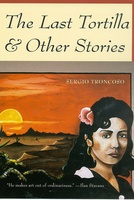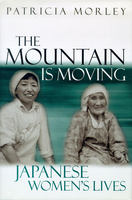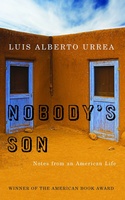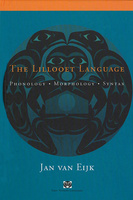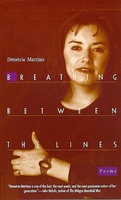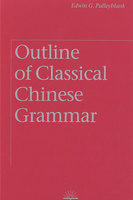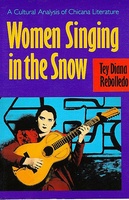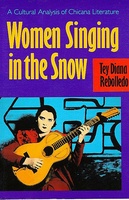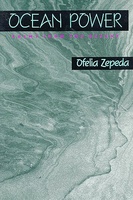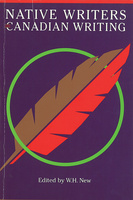The Last Tortilla
"She asked me if I liked them. And what could I say? They were wonderful." From the very beginning of Sergio Troncoso's celebrated story "Angie Luna," we know we are in the hands of a gifted storyteller.
Born of Mexican immigrants, raised in El Paso, and now living in New York City, Troncoso has a rare knack for celebrating life. Writing in a straightforward, light-handed style reminiscent of Grace Paley and Raymond Carver, he spins charming tales that reflect his experiences in two worlds.
Troncoso's El Paso is a normal town where common people who happen to be Mexican eat, sleep, fall in love, and undergo epiphanies just like everyone else. His tales are coming-of-age stories from the Mexican-American border, stories of the working class, stories of those coping with the trials of growing old in a rapidly changing society. He also explores New York with vignettes of life in the big city, capturing its loneliness and danger.
Beginning with Troncoso's widely acclaimed story "Angie Luna," the tale of a feverish love affair in which a young man rediscovers his Mexican heritage and learns how much love can hurt, these stories delve into the many dimensions of the human condition. We watch boys playing a game that begins innocently but takes a dangerous turn. We see an old Anglo woman befriending her Mexican gardener because both are lonely. We witness a man terrorized in his New York apartment, taking solace in memories of lost love.
Two new stories will be welcomed by Troncoso's readers. "My Life in the City" relates a transplanted Texan's yearning for companionship in New York, while "The Last Tortilla" returns to the Southwest to explore family strains after a mother's death--and the secret behind that death. Each reflects an insight about the human heart that has already established the author's work in literary circles.
Troncoso sets aside the polemics about social discomfort sometimes found in contemporary Chicano writing and focuses instead on the moral and intellectual lives of his characters. The twelve stories gathered here form a richly textured tapestry that adds to our understanding of what it is to be human.
The Mountain Is Moving
Japanese Women's Lives
The Mountain Is Moving describes postwar Japanese society and the roles that women are expected to play within it.
Nobody's Son
Here's a story about a family that comes from Tijuana and settles into the 'hood, hoping for the American Dream.
. . . I'm not saying it's our story. I'm not saying it isn't. It might be yours. "How do you tell a story that cannot be told?" writes Luis Alberto Urrea in this potent memoir of a childhood divided. Born in Tijuana to a Mexican father and an Anglo mother from Staten Island, Urrea moved to San Diego when he was three. His childhood was a mix of opposites, a clash of cultures and languages. In prose that seethes with energy and crackles with dark humor, Urrea tells a story that is both troubling and wildly entertaining.
Urrea endured violence and fear in the black and Mexican barrio of his youth. But the true battlefield was inside his home, where his parents waged daily war over their son's ethnicity. "You are not a Mexican!" his mother once screamed at him. "Why can't you be called Louis instead of Luis?" He suffers disease and abuse and he learns brutal lessons about machismo. But there are gentler moments as well: a simple interlude with his father, sitting on the back of a bakery truck; witnessing the ultimate gesture of tenderness between the godparents who taught him the magical power of love.
"I am nobody's son. I am everybody's brother," writes Urrea. His story is unique, but it is not unlike thousands of other stories being played out across the United States, stories of other Americans who have waged warboth in the political arena and in their own homesto claim their own personal and cultural identity. It is a story of what it means to belong to a nation that is sometimes painfully multicultural, where even the language both separates and unites us. Brutally honest and deeply moving, Nobody's Son is a testament to the borders that divide us all.
The Lillooet Language
Phonology, Morphology, Syntax
This timely book is the first complete descriptive grammar of Lillooet, an indigenous Canadian language spoken in British Columbia, now threatened with extinction.
Hungarian Rhapsodies
Essays on Ethnicity, Identity, and Culture
From an examination of photographer Andre Kertesz to a visit to a Hungarian-American church in Cleveland, Richard Teleky reconciles contemporary identity with a heritage from another country.
Breathing Between the Lines
Demetria Martínez has entered the public consciousness by way of the heart. In 1994, she captured a Western States Book Award with her first novel, Mother Tongue, which went on to win widespread national attention. Now, in Breathing between the Lines, the writer returns to poetry, her first love.
Many of the poems in this book touch on the themes from Mother Tongue, about an American activist who falls in love with a Salvadoran political refugee. Weaving together threads of love and family, social conviction and activism, loss and renewal, Breathing between the Lines carries the reader deep inside the head and heart of a talented Chicana writer.
Page by page, the journey is an exhilarating one. What we find at the end is up to us.
Outline of Classical Chinese Grammar
A comprehensive introduction to the syntactical analysis of classical Chinese.
Women Singing in the Snow
This first book-length analysis of the Chicana literary tradition traces the development of Chicana literature from 1848 to the present. Rebolledo discusses major writers' works, important myths and archetypes, and key theoretical issues; she then shows the ways in which Chicana writers explore subjectivity and identity in their writing, the struggle Chicana writers have faced in finding their voices and developing a strong and ethnically tagged language, and the ways they have broken taboos by transgressing into traditionally male spaces.
Women Singing in the Snow
This first book-length analysis of the Chicana literary tradition traces the development of Chicana literature from 1848 to the present. Rebolledo discusses major writers' works, important myths and archetypes, and key theoretical issues; she then shows the ways in which Chicana writers explore subjectivity and identity in their writing, the struggle Chicana writers have faced in finding their voices and developing a strong and ethnically tagged language, and the ways they have broken taboos by transgressing into traditionally male spaces.
Ocean Power
The annual seasons and rhythms of the desert are a dance of clouds, wind, rain, and floodwater in it roles from bringer of food to destroyer of life. The critical importance of weather and climate to native desert peoples is reflected with grace and power in this personal collection of poems, the first written creative work by an individual in O'odham and a landmark in Native American literature.
Poet Ofelia Zepeda centers these poems on her own experiences growing up in a Tohono O'odham family, where desert climate profoundly influenced daily life, and on her perceptions as a contemporary Tohono O'odham woman. One section of poems deals with contemporary life, personal history, and the meeting of old and new ways. Another section deals with winter and human responses to light and air. The final group of poems focuses on the nature of women, the ocean, and the way the past relationship of the O'odham with the ocean may still inform present day experience. These fine poems will give the outside reader a rich insight into the daily life of the Tohono O'odham people.
Lexicon of Reconstructed Pronunciation
in Early Middle Chinese, Late Middle Chinese, and Early Mandarin
The pioneering authority on Chinese historical phonetics Edwin Pulleyblank has compiled this Lexicon to present the result of his researches on the phonology of Middle Chinese and its evolution to Mandarin.
Words We Call Home
Celebrating Creative Writing at UBC
Gives voice to several generations of Canadian writers in their restless search for literary identity. - Calgary Herald
The Cinema of Malcolm Lowry
A Scholarly Edition of Lowry's 'Tender is the Night'.
This filmscript of Tender is the Night, which Malcolm Lowry co-wrote in 1949-50, is less an adaptation of F. Scott Fitzgerald's novel than an extension of Lowry's own fiction.
Native Writers and Canadian Writing
A co-publication with the journal Canadian Literature – Canada's foremost literary journal – this collection examines the growing prominence of contemporary Native writing.
The Letters of Malcolm Lowry and Gerald Noxon, 1940-1952
These letters observe the mind of eminent author Malcolm Lowry at play on questions of literary technique, on films, and on the beauties and rigors of life in his Dollarton shack on an inlet near Vancouver.

